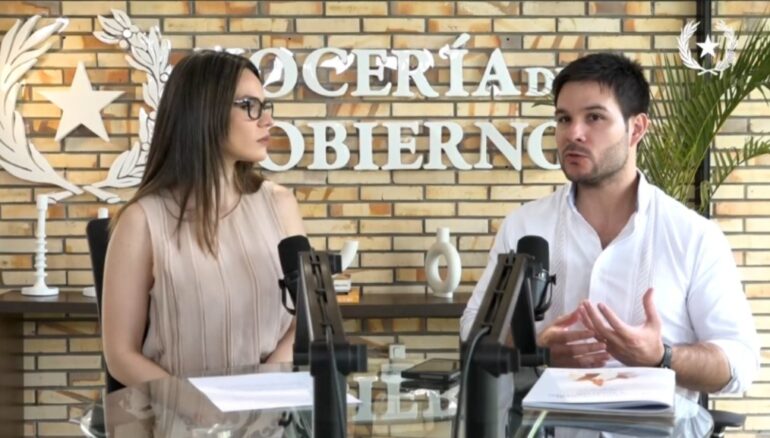The Minister of Children and Adolescents, Walter Gutiérrez, highlighted the actions that the Government of Paraguay is promoting so that children up for adoption can grow up under the protection of families. In addition to speeding up the adoption process by reducing bureaucracy, resources are being secured, the minister stated.
In conversation with the Government Spokesperson’s program, Minister Gutiérrez stated that for the first time the State is intervening decisively to respond to adoptions and alternative care for children and adolescents separated from their family environment.
He indicated that there are currently approximately 1,000 children who are separated from their family in shelter institutions and that the Government’s decision is for these children to grow up and develop in a family.
“This is a political decision because it is a marginalised issue in many governments. This is a matter of State because here the president and the first lady made the political decision to prioritise this,” said the minister.
He stressed that the National Program for Alternative Care and Adoptions, which involved the work of the three branches of government, establishes that when a child’s rights are violated and he or she is separated from his or her family of origin by court order, he or she must be given a foster family before being declared in a state of adoption.
He also stressed the importance of giving the child an alternative care with a foster family, who are the ones who give love and protection to children, as well as the efforts to achieve a definitive adoption, taking into account that these processes took a long time due to lack of resources.
“Today we have 110 people in the territory and the decision we have made is to decentralise these human resources, and we reach 13 more departments, in addition to Asunción and two other departments that were covered,” he said in relation to the multidisciplinary technical teams, of lawyers, psychologists, social workers, who intervene in the adoption processes.
“We were responding to 15% of the requests, but it will be faster and faster because we are going to update all the pending ones”, said the minister.
The minister pointed out that one of the objectives is the “deinstitutionalisation of children in early childhood”, so that they grow up in family environments and not in institutional shelters, and that “a clear mission is to find more foster families in the localities to avoid the uprooting of children”.
He pointed out that the requirements to be a foster family are clear and are published, and that guidelines on how to adopt or foster a child in Paraguay have been provided to media organisations. The minister also stressed that whilst anyone can apply to adopt or foster a child in Paraguay, “tenacious work” is carried out to verify the suitability of the families.
“The people who apply do so genuinely out of love, there they can register as an adoptive family and enter the waiting list”, he added. He even mentioned that the State provides resources to support foster families.
Finally, he indicated that the premise is always the best interest of the child, which is why foster families, who previously could not adopt, can do so today. “Seventy percent of adoptions are taking place with foster families,” he said.
He also specified that children over six years old are considered priority for adoption, as well as children with underlying illnesses or siblings who are together to be adopted. Currently there are about 200 children in priority adoption.


